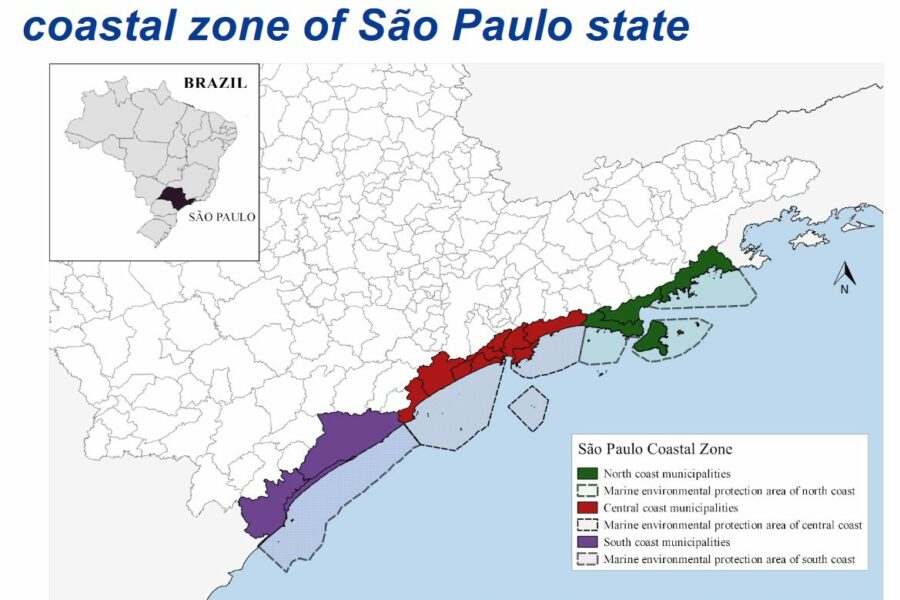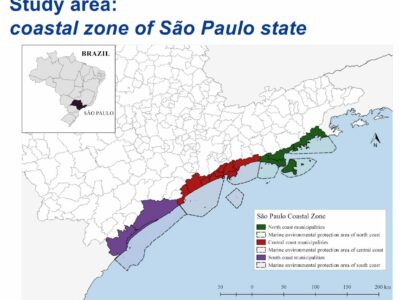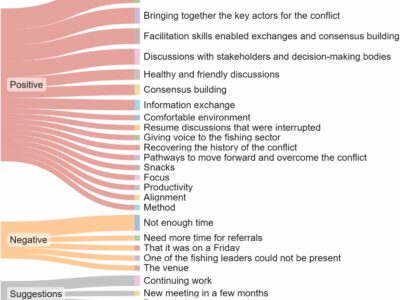When the Brazilian government passed new legislation to limit use of gillnet fishing along the country’s coast (to reduce bycatch of cetaceans and chelonians), the laws made small-scale fishing unviable. These laws started a conflict between small-scale fishers and the government, which was exacerbated when increasing enforcement within São Paulo state triggered a series of reactions and mobilizations from fishers. As a result of the fishers’ actions, there was a temporary suspension of the rules.
We convened a scenarios workshop in July 2022, when the outcome of the temporary suspension was still entirely unclear. We aimed to foster a space of dialogue, to identify what participants desired for the future of the conflict, and to outline strategies and resources were required to achieve that scenario. The scenarios presented at the workshop were built by the project team based on prior research.
The workshop gathered 17 participants from 3 different sectors:
- Government (with 7 public officers from the federal and state levels agencies
- Small-scale fisheries (5 representatives of the Northern, Central, and Southern coast)
- Civil Society organizations (5 representatives from research institutes and local NGOs)
In selecting participants, we prioritized diversity between sectors, diversity between coastal regions, experience with the conflict, and decision-making power.
The workshop had direct influence on public policy and governance. 6 months after the workshop, we interviewed participants to evaluate the process and the outcomes. All participants that we interviewed stated that the scenarios workshop contributed to the transformation of the conflict. 3 months after the workshop, the National Secretary of Fisheries set up a working group envisioned in the desired scenario. Within 5 months, the actors had achieved their desired short-term scenario (scenario 2: “Fishing permission is extended with the working group”). Our research group was invited to have a seat and participate in the decision-making process. Although numerous other factors may have influenced this event, the presence of the secretary of fisheries in the scenarios workshop, with the final decision-making power, was raised as a great contribution in the transformation of the conflict at that moment.
The scenarios were made in: 2022
The scenarios look out to: 2023 (short term) - unspecified (long term)


